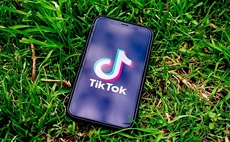Ofcom plan aims to ensure availability of radio spectrum for thousands of applications needed during the events
London 2012 will be wireless-enabled Ofcom has announced plans for the “unique logistical challenge” of managing wireless networks around the London 2012 Olympics. The Games is expected to be...
To continue reading this article...
Join Computing
- Unlimited access to real-time news, analysis and opinion from the technology industry
- Receive important and breaking news in our daily newsletter
- Be the first to hear about our events and awards programmes
- Join live member only interviews with IT leaders at the ‘IT Lounge’; your chance to ask your burning tech questions and have them answered
- Access to the Computing Delta hub providing market intelligence and research
- Receive our members-only newsletter with exclusive opinion pieces from senior IT Leaders


















